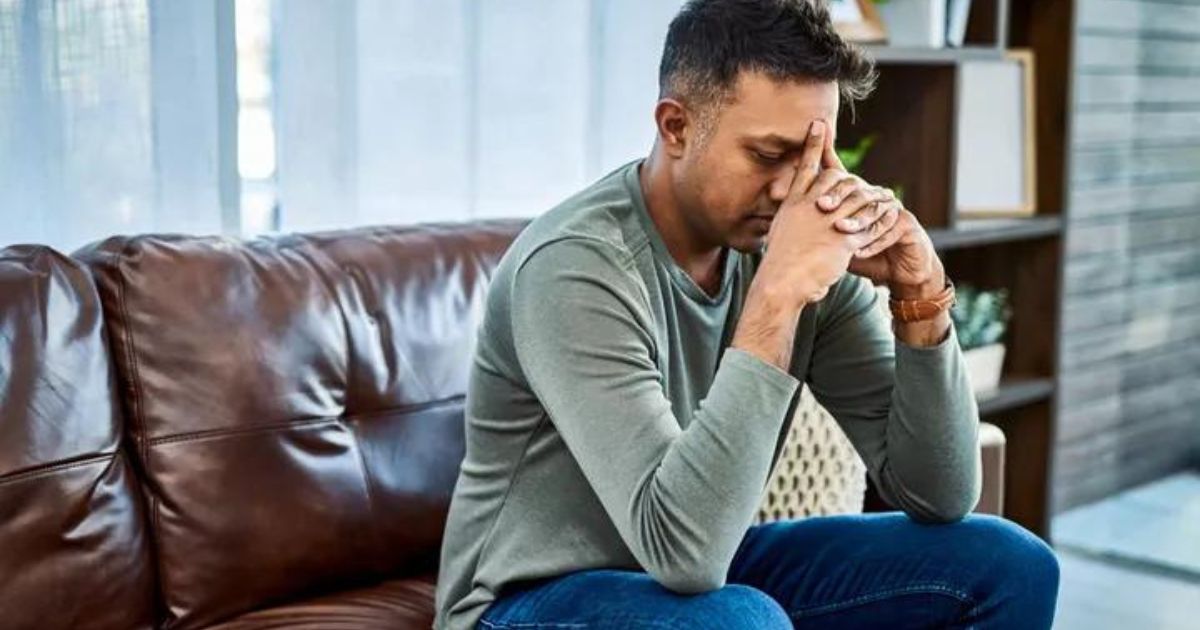A viral trend on TikTok is touting the potential anxiety-alleviating effects of magnesium and vitamin D3 supplements. People struggling with anxiety have taken to social media to share their experiences, with many claiming that this combination has had a positive impact on their symptoms.
The trend was initiated by TikTok user Tyler Wesley (@tylerjohnwesley), who identified himself as a “huge sufferer of anxiety.” In a video posted on July 7, he revealed that he takes a daily regimen of 500mg of magnesium and a single dose of vitamin D.
The result, as he enthusiastically stated in the video, was a significant reduction in his anxiety. “I don’t have anxiety anymore,” Wesley declared. “Thirty years, anxiety my whole life — I don’t have it anymore.”
Wesley’s TikTok video quickly gained traction, amassing over two million likes. Numerous other TikTok users jumped on the bandwagon, attesting to the efficacy of this supplement combination in alleviating their anxiety symptoms.
One such TikToker, @lolbrenden, even “stitched” Wesley’s video, sharing his own experience with magnesium and D3.
Brenden, who had previously been prescribed Klonopin for anxiety, revealed that he took 200 mg of magnesium glycinate in conjunction with a D3 supplement for four days. To his surprise, he noticed a positive change in his anxiety symptoms during this period.
The Viral Phenomenon: Can Magnesium And Vitamin D3 Really Help Manage Anxiety?
The rapid spread of this TikTok trend raises intriguing questions about the potential benefits of magnesium and vitamin D3 in managing anxiety. While anecdotal reports and personal experiences are valuable, it’s essential to approach such claims with a critical and evidence-based perspective.
Anxiety is a complex mental health condition that varies from person to person. It can be influenced by a multitude of factors, including genetics, environment, and individual biochemistry. Consequently, what works for one person may not necessarily have the same effect on another.
Magnesium: A Mineral with Promise
Magnesium is an essential mineral that plays a vital role in various bodily functions, including muscle and nerve function, blood glucose control, and blood pressure regulation. Some research suggests that magnesium may have a role in anxiety management.
In particular, magnesium’s potential anxiolytic (anxiety-reducing) effects may be linked to its ability to regulate the activity of the neurotransmitter gamma-aminobutyric acid (GABA), which has calming properties. However, it’s important to note that scientific evidence on the effectiveness of magnesium supplements in treating anxiety is limited and inconclusive.
Vitamin D3: The Sunshine Vitamin
Vitamin D3, often referred to as the “sunshine vitamin,” is crucial for bone health, immune system function, and overall well-being. Some studies have explored the relationship between vitamin D levels and mood disorders, including anxiety and depression.
Research has suggested that vitamin D may influence the production of serotonin, a neurotransmitter associated with mood regulation. However, like magnesium, the role of vitamin D3 in anxiety management remains a subject of ongoing investigation and debate within the scientific community.
Understanding Anecdotal Evidence
Anecdotal evidence, such as the personal accounts shared on TikTok, can be a valuable starting point for exploring potential treatments or interventions. It allows individuals to exchange information and experiences, which can lead to further research and investigation.
However, it’s important to recognize the limitations of anecdotal evidence. These accounts are subjective and lack the scientific rigor and controls required to establish causation or generalize findings to a broader population. What may work for some individuals may not work for others, and individual responses to supplements can vary widely.
The Importance of Evidence-Based Approaches
Managing anxiety is a complex endeavor that often requires a multi-faceted approach. While some individuals may find relief through dietary supplements like magnesium and vitamin D3, others may benefit from therapy, medication, lifestyle changes, or a combination of these strategies.
Before starting any new supplement regimen, it is advisable to consult with a healthcare professional, such as a doctor or a registered dietitian. They can provide personalized guidance, assess potential interactions with existing medications or conditions, and ensure that the chosen approach aligns with individual health goals.
In conclusion, the viral TikTok trend highlighting the potential benefits of magnesium and vitamin D3 for anxiety management is a compelling phenomenon that underscores the importance of mental health awareness and the power of shared experiences.
However, it is crucial to approach such claims with a balanced perspective, recognizing the value of anecdotal evidence while prioritizing evidence-based approaches and individualized care in the quest to manage anxiety effectively.


























